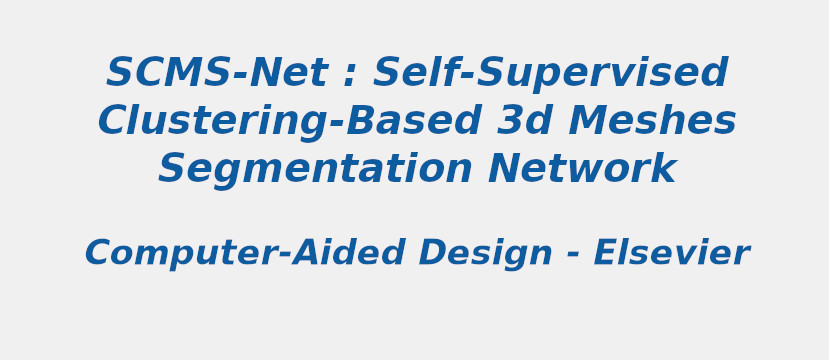Research Area: Machine Learning
The superior performance of deep learning in different domains has sparked significant interest in its applicability to 3D computer graphics. Deep learning has become the dominant technical architecture in current 3D mesh segmentation. However, learning-based 3D segmentation methods usually rely on high-quality training datasets, which are not readily available in practical applications. How to segment 3D meshes without exhaustive label annotations remains a challenging problem, especially in the context of deep learning. As a subset of unsupervised learning methods, self-supervised learning offers a promising learning paradigm for unlabeled 3D mesh segmentation. In this paper, we introduce a self-supervised clustering-Based network specifically for the segmentation of label-free 3D meshes. Our self-supervised clustering-based 3D mesh segmentation network (SCMS-Net) employs a two-branch architecture to learn effective feature representation. The two branches are unified into an end-to-end framework using a self-supervised strategy. Finally, the label predictions of the parts are generated by iterative clustering. We conducted ablation studies and comparative experiments on a standard benchmark to demonstrate the effectiveness of our approach.
Keywords:
Deep learning
Computer graphics
Segmentation methods
Unsupervised learning
Segmentation network
Comparative experiments
Author(s) Name: Xue Jiao, Yonggang Chen, Xiaohui Yang
Journal name: Computer-Aided Design
Conferrence name:
Publisher name: Elsevier
DOI: 10.1016/j.cad.2023.103512
Volume Information: Volume 160
